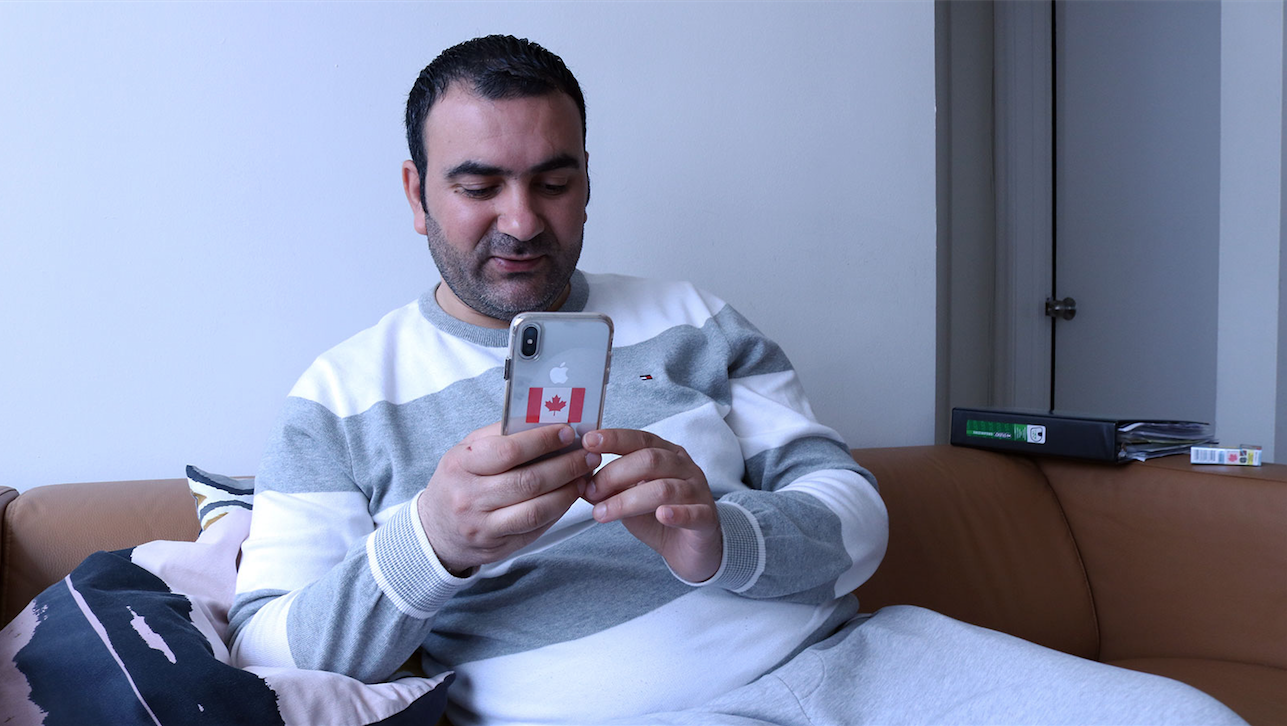Data and the displaced
How new technology could revolutionize a refugee's resettlementBy Raisa Patel
Waseem Soufi and Rasha Haj Ali’s resettlement in Canada began long before they stepped foot in the country. Soufi, 35, and Haj Ali, 28, are Syrian refugees who arrived in Ottawa in late 2017 under Canada’s private sponsorship program. The couple had a head start on the process partially because of their network of sponsors, but also because of social media groups and digital messaging chats springing up on their smartphones. Local organizations and Syrians already living in Canada had formed groups on platforms like Facebook and WhatsApp, meaning Soufi and Haj Ali could learn about their new home – and how to get there – before their sponsorship applications were even approved.
Using smartphones to streamline the application and resettlement process marked one of the first intersections between modern technology and the refugee experience. It represented a shift in the resettlement sector from in-person service delivery to refugees having control of their journey in the palm of their hand.

Waseem Soufi and Rasha Haj Ali (who asked not to be photographed for this project) still use their smartphones to connect with family back home. But these days, they use them for integrating into society much less than they once did. [Photo © Raisa Patel]
In the time since Soufi and Haj Ali arrived, the immigration and refugee sector has swiftly moved to adopt newer forms of data-based technology like artificial intelligence and digital identity to improve the journeys of the displaced. These tools have given policymakers and aid agencies the power to predict a crisis and its aftermath so we can strengthen how we respond, to transfer a refugee’s identity from plastic and paper into an online database and to turn service providers into digital assistants.
The time to streamline and update this sector is now. According to the UN High Commissioner for Refugees, there are currently 68.5 million forcibly displaced people worldwide. Refugees make up more than a third of that number. The combined figure is the highest ever recorded in the organization’s 69-year history.
A global effort is required to address the crisis. But so is careful research and appropriate policy to shape the use of tools that think for themselves or handle private information. Without clear governance, such tools are primed to threaten a refugee’s right to freedom and safety – particularly at a time when proper regulation is lagging behind.